
In commerce, supply chain management (SCM) deals with a system of procurement, operations management, logistics and marketing channels, through which raw materials can be developed into finished products and delivered to their end customers. A more narrow definition of supply chain management is the "design, planning, execution, control, and monitoring of supply chain activities with the objective of creating net value, building a competitive infrastructure, leveraging worldwide logistics, synchronising supply with demand and measuring performance globally". This can include the movement and storage of raw materials, work-in-process inventory, finished goods, and end to end order fulfilment from the point of origin to the point of consumption. Interconnected, interrelated or interlinked networks, channels and node businesses combine in the provision of products and services required by end customers in a supply chain.
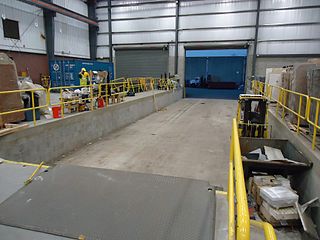
Logistics is the part of supply chain management that deals with the efficient forward and reverse flow of goods, services, and related information from the point of origin to the point of consumption according to the needs of customers. Logistics management is a component that holds the supply chain together. The resources managed in logistics may include tangible goods such as materials, equipment, and supplies, as well as food and other consumable items.

Asia-Pacific Economic Cooperation is an inter-governmental forum for 21 member economies in the Pacific Rim that promotes free trade throughout the Asia-Pacific region. Following the success of ASEAN's series of post-ministerial conferences launched in the mid-1980s, APEC started in 1989, in response to the growing interdependence of Asia-Pacific economies and the advent of regional trade blocs in other parts of the world; it aimed to establish new markets for agricultural products and raw materials beyond Europe. Headquartered in Singapore, APEC is recognized as one of the highest-level multilateral blocs and oldest forums in the Asia-Pacific region, and exerts significant global influence.

A supply chain, sometimes expressed as a "supply-chain", is a complex logistics system that consists of facilities that convert raw materials into finished products and distribute them to end consumers or end customers. Meanwhile, supply chain management deals with the flow of goods within the supply chain in the most efficient manner.
A value chain is a progression of activities that a business or firm performs in order to deliver goods and services of value to an end customer. The concept comes from the field of business management and was first described by Michael Porter in his 1985 best-seller, Competitive Advantage: Creating and Sustaining Superior Performance.
The idea of [Porter's Value Chain] is based on the process view of organizations, the idea of seeing a manufacturing organization as a system, made up of subsystems each with inputs, transformation processes and outputs. Inputs, transformation processes, and outputs involve the acquisition and consumption of resources – money, labour, materials, equipment, buildings, land, administration and management. How value chain activities are carried out determines costs and affects profits.
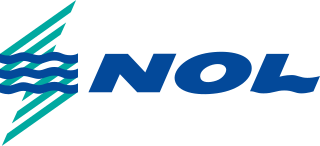
Neptune Orient Lines Limited (NOL) was a Singaporean container shipping company. It was founded in 1968 as Singapore's national shipping line, but was later sold as a subsidiary to French shipping company CMA CGM in 2016. On 1 October 2020, NOL was restructured into a regional hub and was renamed to CMA CGM Asia Pacific Limited.
Vendor-managed inventory (VMI) is an inventory management practice in which a supplier of goods, usually the manufacturer, is responsible for optimizing the inventory held by a distributor.
The Association for Supply Chain Management (ASCM) is a not-for-profit international educational organization offering certification programs, training tools, and networking opportunities to increase workplace performance. Formed in 1957, it was originally known as the "American Production and Inventory Control Society" or APICS. The mission of the organization is to advance end-to-end supply chain management. APICS merged with the Supply Chain Council in 2014, and the American Society of Transportation and Logistics in 2015. In 2018, APICS renamed itself ASCM.
Team Global Express operates a logistics and global freight forwarding network spanning 150 countries, with over 20,000 customers. Toll has more than 16,000 team members across 500 sites.
DHL Supply Chain is a division of Deutsche Post DHL and is affiliated with DHL. Headquartered in Bonn, Deutsche Post has 510,000 employees.

Purchasing managers' indexes (PMI) are economic indicators derived from monthly surveys of private sector companies.
The Chartered Institute of Logistics and Transport in the UK is the membership organisation for United Kingdom professionals involved in the movement of goods and people, and their associated supply chains. It is a National Council of CILT International.
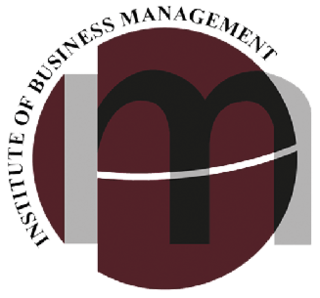
The Institute of Business Management (IoBM) is a private university and business school in Karachi, Pakistan. IoBM is composed of four colleges, the College of Business Management (CBM), the College of Economics and Social Development (CESD), the College of Computer Science and Information Systems (CCSIS) and the College of Engineering Sciences (CES).
Philip Poh is a professor that developed the Singapore Purchasing Managers Index (PMI) in 1998. After a successful pilot survey, the Singapore PMI was launched in January 1999 and the index has become a barometer of the Singapore manufacturing economy. In 2002, government officials in China sought the advice of Professor Poh to develop the China PMI. Since then, the China PMI has also become an indicator of the global manufacturing economy.
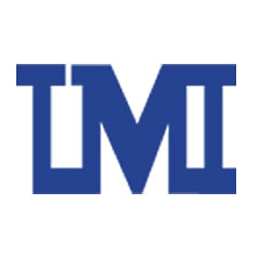
Uganda Management Institute (UMI) is a government-owned national center for training, research, and consultancy in the field of management and administration in Uganda. It is one of the nine public universities and degree-awarding institutions in the country outside the military.

Wolfgang Lehmacher is an international expert, thought leader, technology evangelist, and practitioner in the field of supply chain, transport, and logistics. He has been involved in various transformational initiatives in the industry. The seasoned executive with vast global industry experience anchored in dozens of positions in management and on boards of directors is also a prolific writer and regular speaker at events all across the globe. Important roles include president and CEO of GeoPost Intercontinental, the global investment and expansion vehicle of French La Poste, and director, head of Supply Chain and Transport Industries at the World Economic Forum. The business mentor is advisor to RISE and Global:SF, a not-for-profit organization dedicated to paving the way for international companies to locate, invest, and grow in the San Francisco Bay Area while helping local companies expand into global markets. As an advocate of the circular economy, he is involved in CIRPASS, an EU-funded digital product passport initiative. He also is a member of the Ethical Committee that informs Dynex Moonshots, the investment, strategic, and ethical steward of the Dynex Ecosystem. Dynex is the world's only accessible neuromorphic quantum computing cloud. Jointly with other experts and academics he also conducts surveys like a Claros study, a new method that starts with a ChatGPT-generated list of issues validated by a pool of experts, yielding actual schools of thought in the maritime industry. With his engagement in numerous publications, including the books Wie Logistik unser Leben prägt, Logistik im Zeichen der Urbanisierung, Disrupting Logistics - Startups, Technologies, and Investors Building Future Supply Chains, Circular Economy, and Maritime Decarbonization he contributes to the public discourse. Many of his books have been published at Springer Gabler. He is a Financial Times, Nikkei Asian Review, Business Insider, World Economic Forum Agenda and BVL-Blog contributor. Lehmacher contributes to a broad range of papers, such as "How Technology Can Unlock the Growth Potential along the New Silk Road", "Blockchain Technology for Ports", "Impact of the Fourth Industrial Revolution on Supply Chains", "Trade Tech – A New Age for Trade and Supply Chain Finance", and “Reducing port city congestion through data analysis, simulation, and artificial intelligence to improve the well-being of citizens”. Lehmacher is the lead author of the “Practical Playbook for Maritime Decarbonisation”.

Shekar Natarajan is a business executive known for his work in the supply chain industry. He has held supply chain executive positions at various corporations including Coca-Cola Consolidated, PepsiCo, Anheuser-Busch, Disney, Walmart, Target and American Eagle Outfitters. He also writes in the field of supply chain management.

Richard Wilding is a British academic and business professional specialising in logistics, transport and supply chain management. He is recognised as one of the world's leading experts in logistics and supply chain management.

The Jurong Town Hall, or Trade Association Hub (TA Hub) is a commercial building and the former headquarters of the Jurong Town Corporation. The building is symbolic of the success of Singapore's industrialisation programme in Jurong and was gazetted as a national monument on 2 June 2015. It served as a hub space for head start technology companies in the 2000s. The building was further developed into a new hub for trade associations with Singapore Chinese Chamber of Commerce and Industry as the anchor tenant by 2017. The road Jurong Town Hall Road was named after this building.
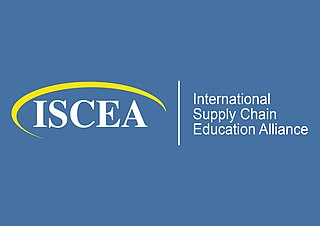
The International Supply Chain Education Alliance (ISCEA) is a certifying body. Founded in 2003 and currently holding over 100,000 members, ISCEA has its World HQ office in Beachwood, OH, USA and regional offices in LATAM, EMEA and APAC. ISCEA is the governing body for the Ptak Prize.













